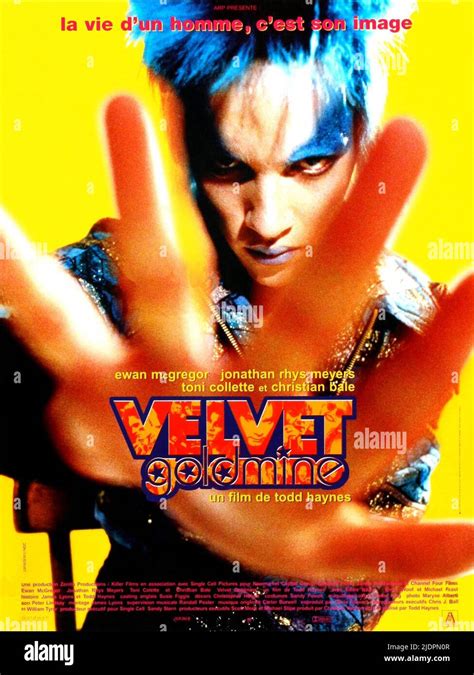Velvet Goldmine

Description:
Velvet Goldmine is a 1998 drama film that tells the story of a British journalist investigating the mysterious disappearance of a glam rock star. Through interviews and flashbacks, the film explores themes of identity, fame, and sexuality, set against the backdrop of the 1970s music scene.Keywords:
Glam Rock, Identity, Sexuality, Fame, 1970sIs Velvet Goldmine a queer movie?
Yes, "Velvet Goldmine" is considered a queer movie. Directed by Todd Haynes, the film explores themes of sexuality, identity, and the glam rock scene of the 1970s. It features a bisexual protagonist and portrays relationships between men, along with the fluidity of sexual orientation. The film celebrates and critiques the era's sexual liberation, making it significant in LGBTQ+ cinema. Its vibrant aesthetics and exploration of queer culture further solidify its status as a landmark queer film.
Is the movie Velvet Goldmine about David Bowie?
"Velvet Goldmine" is not a direct biopic about David Bowie, but it is heavily inspired by his life and the glam rock era of the 1970s. The film features a fictional narrative that revolves around a rock star named Brian Slade, who embodies elements of Bowie's persona. The story explores themes of identity, fame, and the impact of glam rock on culture. While Bowie is not explicitly depicted, his influence is significant throughout the film, making it a homage to his artistry and the era he helped define.
Who is Ewan McGregor supposed to be in Velvet Goldmine?
In "Velvet Goldmine," Ewan McGregor plays the character Curt Wild, a flamboyant and charismatic rock star inspired by real-life figures from the glam rock era, such as David Bowie and Iggy Pop. Curt Wild is a pivotal character in the film, representing the spirit of the 1970s glam rock movement, and his relationship with the protagonist, Brian Slade, explores themes of identity, sexuality, and the impact of fame. The film is a celebration of the artistic and cultural revolution of that time.
Why didn't Bowie like Velvet Goldmine?
David Bowie was reportedly not fond of "Velvet Goldmine" because he felt it was a misrepresentation of his life and artistic persona. The film, directed by Todd Haynes, takes inspiration from Bowie's glam rock era but approaches it through a fictional narrative, which Bowie believed distorted the realities of his experiences and influences. Additionally, he was concerned about the way his image was used without direct approval, leading to a sense of discomfort regarding the film's portrayal of glam culture and its connection to his legacy.
Explore More Categories: